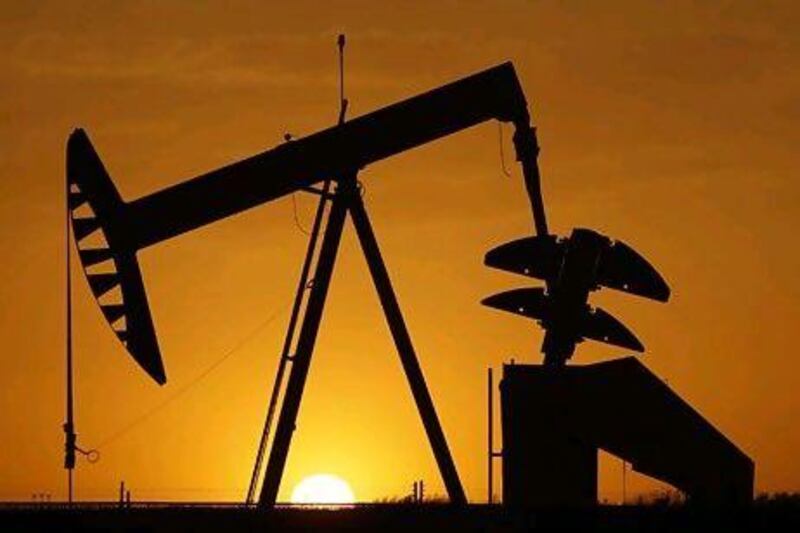Euro-zone turmoil and concerns over Iran sanctions force crude prices down to their lowest levels since the aftermath of the global financial crisis, writes Robin Mills.
As if in a rerun of ancient history, the oil markets are trapped between Greece and Iran. Tehran was on top earlier in the year; now Athens is striking back. But this is a contest of weakness, not of strength.
Traders are balancing two competing problems. From January onwards, worries intensified over sanctions on Iran, imposed because of concerns that the country has a nuclear-weapons programme.
There were fears that a confrontation might block the Strait of Hormuz, the conduit for a fifth of global oil supplies, or that an American or Israeli strike on Iran could precipitate a wider conflict.
A ban on Iranian oil exports to the European Union comes into force on July 1, but many European customers have already halted purchases. The United States has pressured other countries, including South Korea, Japan, India, Turkey and South Africa, to cut oil purchases from Iran. And sanctions on insurance companies providing coverage for tankers carrying Iranian oil have made it hard for the country to ship its crude.
Iran's exports fell from about 2.2 million to 2.3 million barrels per day last year and to 1.5 million bpd this April. As much as 36 million barrels may be floating unsold in tankers in the Gulf.
In March, Brent oil prices reached US$128 per barrel, the highest since the global financial crisis and exceeding even the levels during last year's overthrow of Libya's Muammar Qaddafi.
But last month, worries over Greece and the euro zone struck back, with the downgrading of Spain's credit rating.
The Chinese slowdown continued, with growth falling below 8 per cent for the first time since 2009, while South Korea's exports fell for the fourth straight month, and India's growth was at its weakest in nine years. Dialogue in Baghdad between the West and Iran, although inconclusive, nevertheless helped to ease traders' immediate concerns.
Accordingly, May was the worst month for oil prices since the 2008-2009 global financial crisis.
On Friday, Brent crude oil dropped below $100 for the first time in eight months.
Yet there is a third, more powerful antagonist in this struggle - one unknown to Xerxes of Persia or to Alexander the Great.
Saudi Arabia has increased its production to a 30-year high, and has been joined in this by its Gulf allies Kuwait and the UAE.
Libyan output has all but recovered from the country's civil war. Most significant for the longer term, foreign investment in Iraq is at last showing results, and its production now almost matches Iran's; its exports are already above its neighbour's.
Despite a slight dip last month from April, overall Opec production is 2.44 million bpd above its own estimates of demand, and so stocks are accumulating and driving down prices. US inventories have reached their highest level since 1990.
Not surprisingly, the falling oil price worries Gulf markets, with the Saudi stock exchange dropping 4.2 per cent on Saturday.
The IMF estimates Riyadh requires $80 per barrel to balance its budget, with Iran, Iraq and the UAE needing even more. By next year, the Saudi budget could be in deficit.
In view of their own fiscal challenges, why are the Saudis pursuing this policy?
They have two motivations. The first is to ease global economic worries, and to try to avoid a rerun of the Lehman Brothers crisis in September 2008, triggered, for instance, by a Greek exit from the euro. During the onset of the financial crisis, oil prices plummeted from $147 per barrel to $37.
The problem here is that, while Saudi Arabia can help to ease the burden of high oil prices on the global economy, it is up to the Europeans to sort out Greece. And, by accumulating large inventories, the stage has been set for prices to heavily undershoot the $100 target price of the Saudi oil minister, Ali Al Naimi.
The second Saudi aim is to weaken Iran. Lower oil prices starve Tehran of cash, while Riyadh is happy to replace its adversary's lost exports. Saudi Arabia has much larger financial reserves than Iran to see out a period of weak prices.
Accumulating large stocks of crude at various strategic locations, including Texas, Egypt and Japan, is insurance against a conflict that could disrupt oil supplies. However, should a compromise be reached over Iran's nuclear activities, an easing of sanctions would relieve oil buyers and release a flood of unsold oil.
For the time being, the Saudis have the upper hand. But it is almost guaranteed that the balance will swing too far from the desired equilibrium - more probably to lower oil prices, and difficult economic choices for the Gulf.
Robin Mills is the head of consulting at Manaar Energy and the author of The Myth of the Oil Crisis and Capturing Carbon
twitter: Follow and share our breaking business news. Follow us
iPad users can follow our twitterfeed via Flipboard - just search for Ind_Insights on the app.





